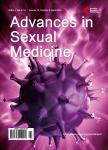Knowledge about Sexual and Reproductive Health Services and Practice of What Is Known among Ghanaian Youth, a Mixed Method Approach
Knowledge about Sexual and Reproductive Health Services and Practice of What Is Known among Ghanaian Youth, a Mixed Method Approach作者机构:Department of Sociology and Social Work Kwame Nkrumah University of Science and Technology Kumasi Ghana Beijing Normal University Beijing China Department of Theoretical and Applied Biology Kwame Nkrumah University of Science and Technology Kumasi Ghana
出 版 物:《Advances in Sexual Medicine》 (性医学进展(英文))
年 卷 期:2016年第6卷第1期
页 面:1-13页
学科分类:0303[法学-社会学] 03[法学] 030302[法学-人口学]
主 题:Youth Knowledge Sexual Attitude and Practices Sexual Reproductive Health Services Utilization Ghana
摘 要:Most young person will become sexually active before their 20th birthday having to battle with early and unplanned pregnancies, unsafe abortions, maternal deaths and injuries. This study examined young person’s sexual knowledge, attitudes and practices and their levels of utilization of sexual reproductive health. Our study progresses beyond current research of reporting only sexual behaviour among youth to have insight into sexual and reproductive health update drivers yielding new empirically robust results for the Ghanaian case for sexual and reproductive health service uptake. The descriptively cross sectional design was employed in sampling 170 youth (150 surveyed and 20 Interviewed) using the stratified sampling technique together with a purposive selection of one key informant. Test of significance and associations were performed with the Chisquare test. In all 45.2% (77/170) of youth (10 - 24) had had sexual experience in life time. In respect of in-school youth, 42% (63/150) had had sexual experience whiles 70% (14/20) out-of-school youth had had sexual intercourse in life time. A total of 28.8% (49/170) of all the youth had sexual intercourse in the last six months with only 40.1 (20/49) using condom for protection. Parental discussion of contraceptive methods (29.3%) and sexual and romantic relationship (28.0%) was the least sexual and reproductive health area discussed among in-school youth. Youth knowledge of the available sexual reproductive health service was statistically associated with reproductive health service utilization (X2 = 0.00, P ≤ 0.05). A concerted effort is required from government, NGO, Civil society organizations and religious bodies to help translate youth knowledge about sexual health into responsible sexual life and protective sex.



